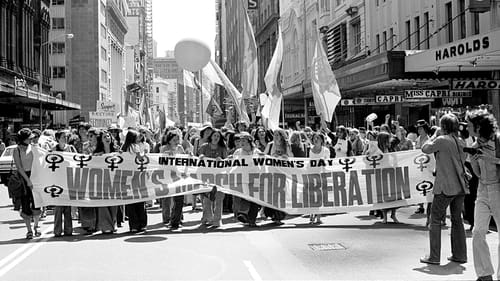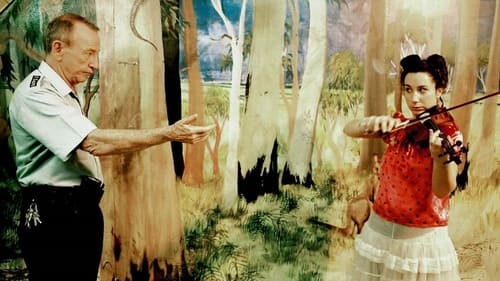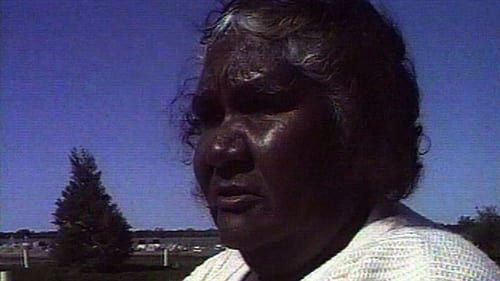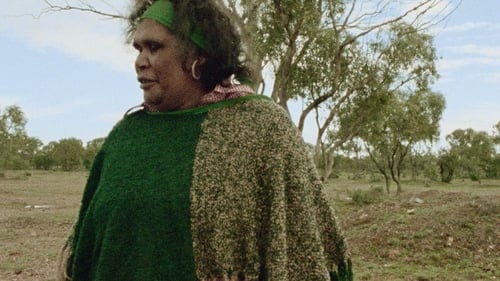
Self
BRAZEN HUSSIES reveals for the first time, an exciting and revolutionary chapter in Australian history, the Women’s Liberation Movement (1965 -1975). Interweaving freshly uncovered archival footage, personal photographs, memorabilia and lively personal accounts from activists all around Australia, BRAZEN HUSSIES shows us how a daring and diverse group of women joined forces to defy the status quo, demand equality and create profound social change. These women defined one of the greatest social movements of the 20th Century, at times at great personal cost. This documentary is full of the raw energy and determination that fueled feminism for the next 50 years.

Consulting Producer
Forty years ago, Wollongong’s Jobs for Women Campaign, with director Robynne Murphy among its leaders, took on Australia’s most powerful company BHP – and won. But when the 1980s steel slump devastated the city’s economy, the women were forced into the courtroom. Their struggle plays out against a background of societal changes: from anti-discrimination legislation, to the shifting roles of women in the home and workforce (particularly complex in Wollongong’s migrant, non-English speaking households). This fascinating account of the largely forgotten history of Australia’s Steel City was crafted over decades with support from local community volunteers and over 500 donors.

Writer
Every morning Betty tramps alone through the big city to join her fellow buskers in the pedestrian tunnel below, trying to earn a living. But her earnings are meager, and to make things worse, the new security guard, Joe, is trying to confiscate her fiddle. While Betty dreams of fame and fortune, Joe dreams of earplugs – something’s got to give!

Producer
Every morning Betty tramps alone through the big city to join her fellow buskers in the pedestrian tunnel below, trying to earn a living. But her earnings are meager, and to make things worse, the new security guard, Joe, is trying to confiscate her fiddle. While Betty dreams of fame and fortune, Joe dreams of earplugs – something’s got to give!

Director
Every morning Betty tramps alone through the big city to join her fellow buskers in the pedestrian tunnel below, trying to earn a living. But her earnings are meager, and to make things worse, the new security guard, Joe, is trying to confiscate her fiddle. While Betty dreams of fame and fortune, Joe dreams of earplugs – something’s got to give!

Executive Producer
Speaking in Arabic and English, Soliman Al-Halawani, Dr. Mahmoud Hourani, Fouad Charida, Dib El Chami and Rafica El Chami Batach tell of their life in Palestine before 1948 and give eye-witness accounts of the tumultuous days of 'Al Nakba' (the catastrophe), May 15th, and its aftermath. As children and young adults, they and their families were among 750,000 Palestinians fleeing for their lives, as Zionist terror gangs began seizing villages to enlarge the recently created State of Israel. The stories told by these speakers are poignant, unexpected and sometimes surprising, expressing not only the tragedies but also the small miracles which occur in a human catastrophe of such dimensions. Prevented from returning to their homes, the speakers lived as refugees, eventually making their way to Australia. Their continued longing to see their homeland eloquently expresses the feelings of the dispossessed everywhere, and gives this film a universal dimension.

Producer
Far right and anti-immigration politics have been on the rise worldwide. In Australia, as in many other western countries, as Ordinary People was filming, a new political force began drawing on the discontent of those who felt excluded from the promised benefits of globalisation. This revealing documentary follows One Nation candidate Colene Hughes over two years and two elections as her idealistic fervour slowly turns to disillusionment. Initially for Colene and her supporters, One Nation seems to offer true democracy and a way of knocking the country back into shape. But when Colene starts to question the control of party leaders, the gloves come off and, at the party’s annual general meeting, the two forces collide.

Director of Photography
In her second film, MY LIFE AS I LIVE IT (1993), Essie Coffey returns to her home in Dodge City where she and the A-Team are running in the shire elections. Inter-cutting between 1993 and 1978, the film presents the fascinating contrasts of a society in transition. Some of the kids we met in the earlier film now have families of their own and are involved in education, art and sports. Others are drifting, trying to cope with alcohol and depression. Most significantly, community programs offer the possibility of dignity and self-determination. In this film, Essie shows us the Community Development Employment Program (CDEP) making a real difference. Although the CDEP has now come under attack from the Federal government, MY LIFE AS I LIVE IT portrays the CDEP as providing meaningful work and services to an impoverished remote community.

Director
This is the account of the Aboriginal People of Perth on protest to protect the Ancestral First Grandmothers' and Grandfathers' Beliefs of the Sacred Ground of the Waugul at the old Swan Brewery on the Swan River in Perth, W.A.

Director
A drama with strong documentary elements, set in the port city of Fremantle, WA, at a time of American nuclear fleet visits. The film traces the conflicts Anna faces within her family and within a divided town. It explores and connects the critical issues of self-determination and self-reliance, both in personal and in international relationships.

Set against the backdrop of modern-day Sydney, this heist-style thriller involves four politicised women from varying backgrounds, who conspire to sabotage the research programme of a multi-national firm, Utero, which is engaged in reproductive engineering. One of the women loses her diary which contains information and diagrams about the raid only a few days to count down. Will the diary fall into the wrong hands leading to the detection of the women before they have a chance to complete their mission? As the tension mounts, so the wider context of the women's lives as mothers, lovers and providers is also shown under strain indicating the many other considerations women have to take into account when embarking on any form of public activity.

Producer
A quarter of a million drug addicts —one of the most serious consequences of the Vietnam War. These addicts were the citizens of the South, and of Ho Chi Minh City, the former Saigon. Shot in 1981 by three Australian women, Changing the Needle was the first in-depth film to be made about Vietnam’s unique approach to drug rehabilitation at a time when few foreign film crews had access to Vietnam at all.

Director
A quarter of a million drug addicts —one of the most serious consequences of the Vietnam War. These addicts were the citizens of the South, and of Ho Chi Minh City, the former Saigon. Shot in 1981 by three Australian women, Changing the Needle was the first in-depth film to be made about Vietnam’s unique approach to drug rehabilitation at a time when few foreign film crews had access to Vietnam at all.

Director of Photography
Essie Coffey gives the children lessons on Aboriginal culture. She speaks of the importance of teaching these kids about their traditions. Aboriginal kids are forgetting about their Aboriginal heritage because they are being taught white culture instead.

Co-Producer
Essie Coffey gives the children lessons on Aboriginal culture. She speaks of the importance of teaching these kids about their traditions. Aboriginal kids are forgetting about their Aboriginal heritage because they are being taught white culture instead.

Video Assistant
Four young people get to know each other by spending weekends on a yacht stationed in Sydney's Pittwater area.

Sound
Maidens(1978) is an autobiographical essay film, using personal archives, still and moving image, from both domestic and other sources, lyrical narration and emotive music to trace the filmmaking journey of one feminist (the filmmaker herself). Almost four years in the making, Maidens picked up local and international short film awards and became compulsory viewing in women and film courses around the country -- where it sparked much impassioned debate. It remains essential viewing for an enhanced understanding of the moment of awakened consciousness that characterised 1970s feminism.

Director
A docu-drama shot in 1970, but not completed until 1973, the film sought to encapsulate in an experimental form issues that were under discussion within the Women’s Liberation Movement at this time and to thus contribute to action for change. In its numerous community screenings, active debate was encouraged as part of the viewing experience.

Producer
A docu-drama shot in 1970, but not completed until 1973, the film sought to encapsulate in an experimental form issues that were under discussion within the Women’s Liberation Movement at this time and to thus contribute to action for change. In its numerous community screenings, active debate was encouraged as part of the viewing experience.


















